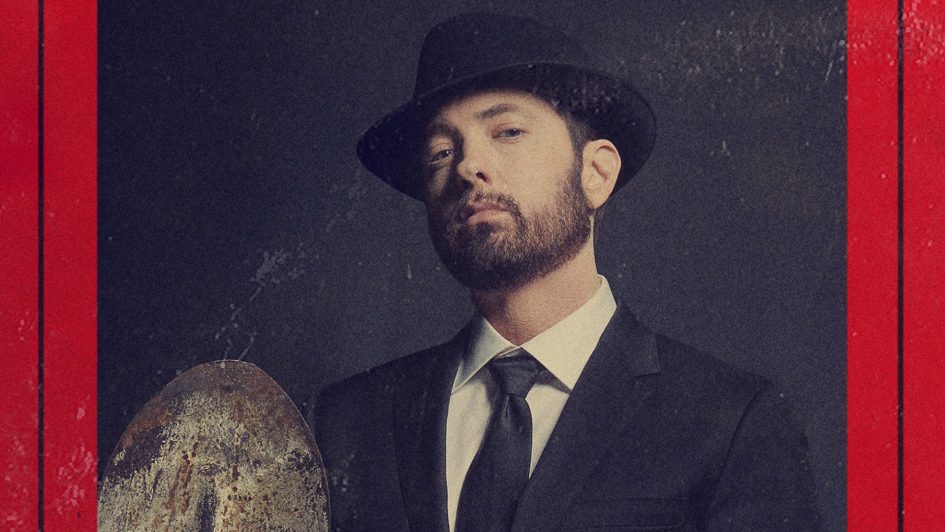I chose “Darkness” as a subject not only because it’s a new song, but particularly because it’s a new song by Eminem. Eminem has attracted a fair share of criticism over the years for his subject matter and production decisions, but my appreciation of his work rests on the foundation that is his consistency not just in lyrical complexity, but his presentation of lyrics in larger contexts.
Eminem can rap quickly, and is a master of concurrent rhyme schemes, puns, and more. However, when Eminem wants a track to really mean something, he’ll subtly reference other music and events existing outside of the song. For example, his song “Killshot,” a response to a diss track aimed at him, was released two weeks into the month of September. The date coincides roughly with the death days of Patrick Swayze and Tupac Shakur, both of whom are mentioned prominently in the lyrics of the song. This level of thought given to the circumstances surrounding a work’s production and release makes me eager to explore a song like “Darkness,” which protests the extremely present and volatile issue of gun violence.
“Darkness” presents several layers of context for me to explore. It is a direct product of Eminem’s prior career and image, and the media’s response to some of his particular songs and albums, not to mention its treatment of mass shootings. The content and message of the song are rooted in the continuing endemic of gun violence in America, and indeed it references nine shootings from approximately the past decade. I think its most significant feature, however, is how it flips “The Sound of Silence,” as written by Paul Simon. Musically, “Darkness” draws from the chords and chorus of “The Sound of Silence,” using them strategically to accentuate the climax of its narrative. However, to analyze the meaning of “Darkness” requires an analysis of “The Sound of Silence,” which while written in an entirely different cultural context, predict the underlying themes and issues that “Darkness” discusses. “Darkness” thus builds an elegant bridge to one of the most iconic and lyrically rich musical pieces of the 20th century.
I’m committed to studying “Darkness” for several reasons. I’m a fan of Eminem, and I think this is not only one of his more compelling works, but one which represents a creative milestone in his career. I find gun control and gun violence to be particularly important issues in the United States, and to the urban environment that’s hosted my academic career. Beyond violence, I believe the themes of isolation, obsession, and helplessness at the core of both this song and “The Sound of Silence” must be talked about in modern society. In fact, I think they define our current cultural moment.
Of course, I run the risk of getting lost in the parallel threads of influence running through the song, or of simply running out of things to say about it. It is telling, though, that out of all the works of Eminem, arguably one of the most clever and sophisticated storytellers of our generation, I wouldn’t pick any of them over “Darkness.” I simply find it too important to pass up.

February 5, 2020 at 8:39 pm
An excellent choice, Gavin! I doubt you’ll run out of things to say. There’s so much here and so much context.
I’m looking forward to see what you do with it.
Bill